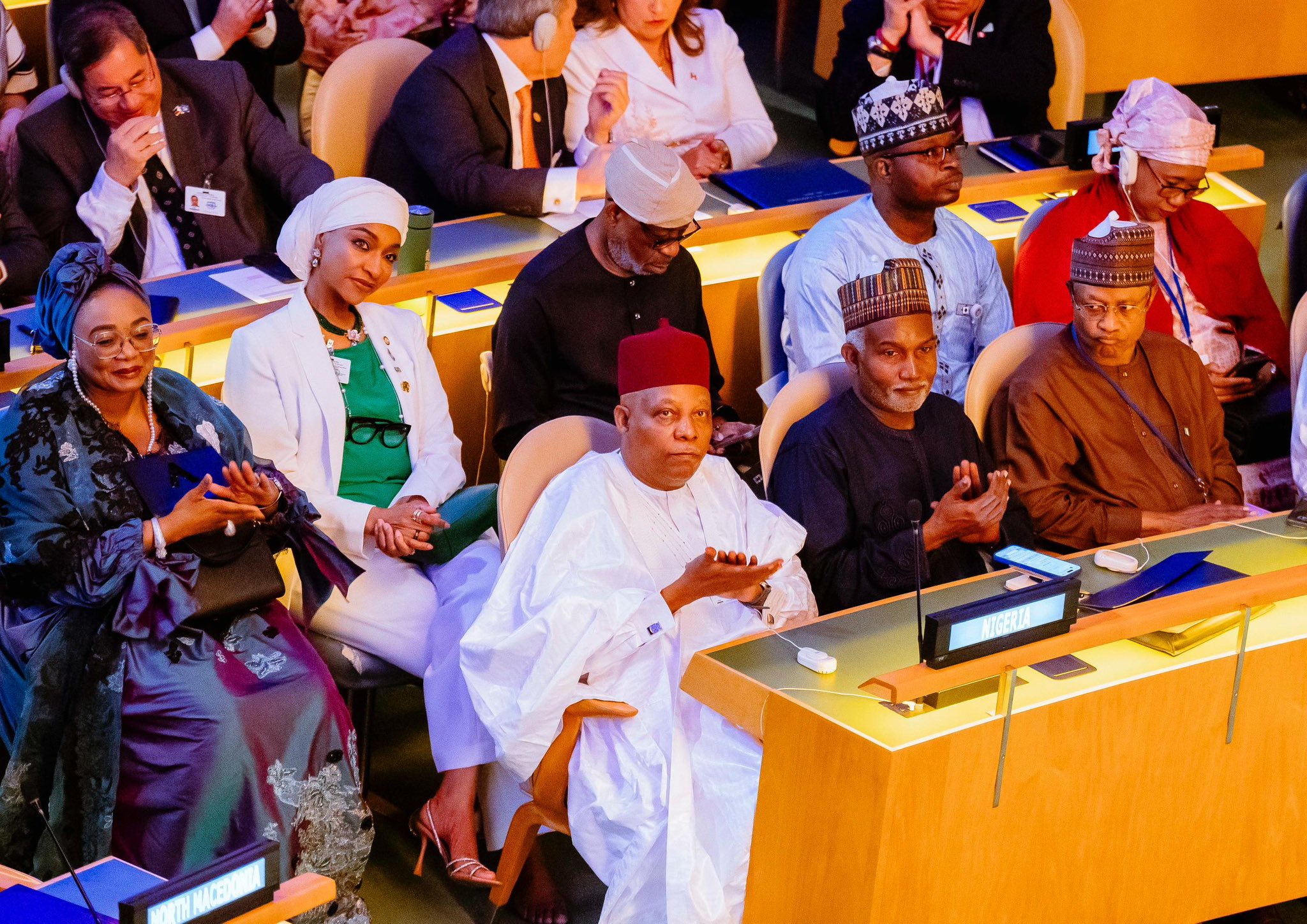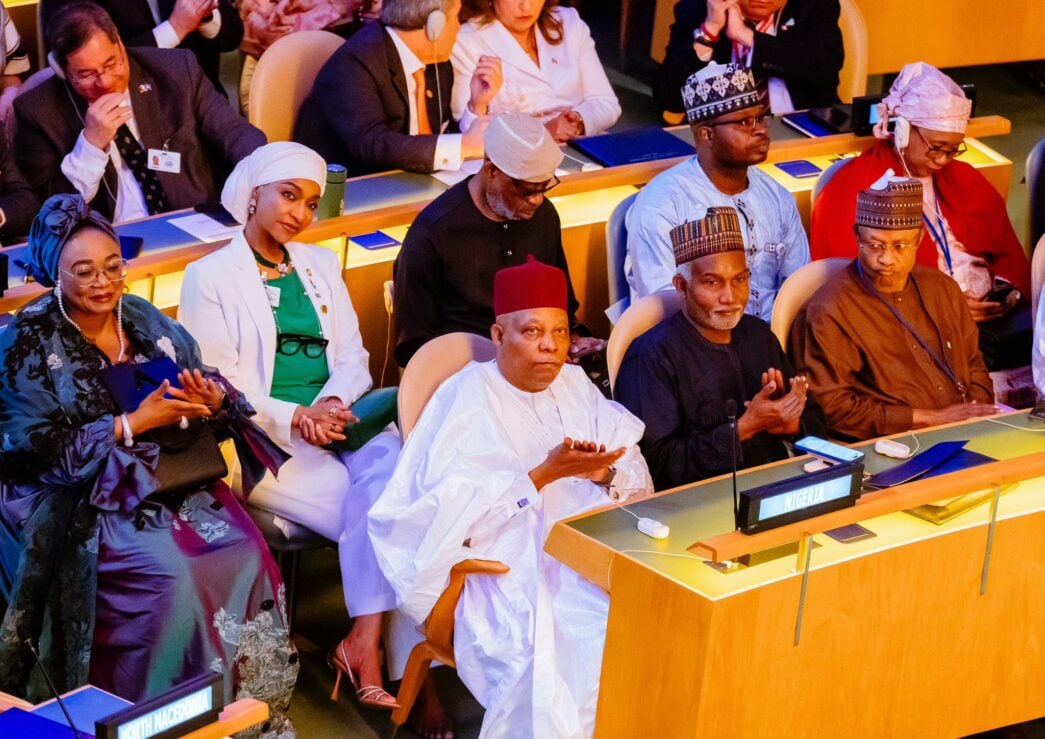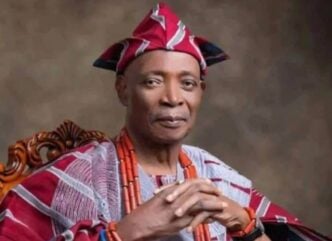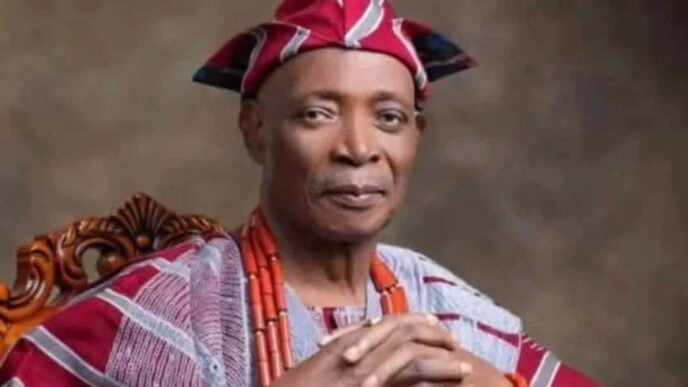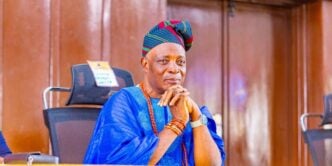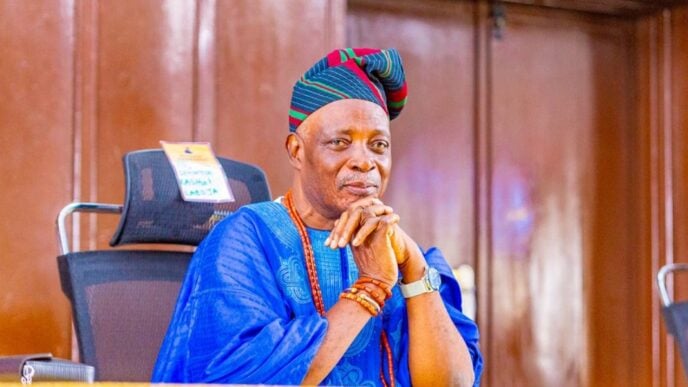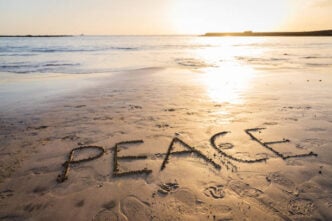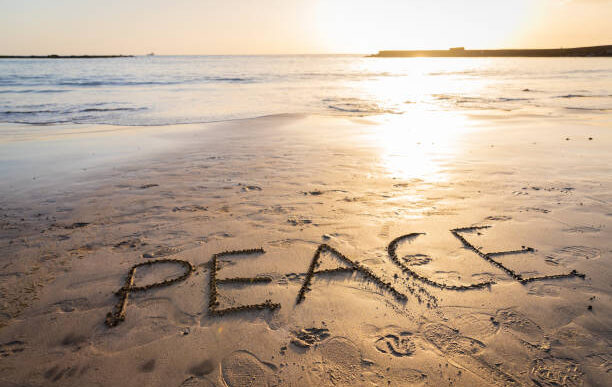BY SIMBO OLORUNFEMI AND ADE ADEFEKO
Today, Mr Kashim Shettima, Vice President of the Federal Republic of Nigeria, will be addressing the United Nations General Assembly. It is a speech we eagerly anticipate, not just because the VP has a way with words and is well regarded as a Bibliophile, the speech comes on the back of his impressive presentation last year. Beyond that is the momentousness of the occasion, being the 80th Anniversary of the United Nations, and different developments within Nigeria and the world at large in the last year that have to be addressed.
Speaking on behalf of President Bola Tinubu at the 79th United Nations General Assembly in September 2024, Nigeria’s Vice President took a cue from Nigeria’s 25-year unbroken democratic run in renewing her commitment to democratic principles, accountability, and the rule of law, while expressing concern about the unconstitutional changes of government in the Sahel and other regions, while urging for the restoration of order and the reaffirmation of democratic norms around the world.
He emphasised the importance of peace and security in the quest for sustainable development, especially as violent extremism has continued to threaten lives and the stability of communities across Africa and the world. He reaffirmed “Nigeria’s unwavering support for the Palestinian people in their struggle for self-determination and the establishment of a sovereign state alongside Israel, based on a just and lasting two-state solution.” He underscored Nigeria’s commitment to UN peacekeeping and the establishment of the African Standby Force as a critical instrument for regional security and conflict resolution with international support. But over and above all, Vice President Shettima restated Nigeria’s commitment to the transformation of the United Nations Security Council and the need for permanent representation for the African continent on the Council.
Kashim Shettima takes to the rostrum at the General Assembly Hall today, 13 days short of 65 years since Nigeria’s first Prime Minister, Sir Abubakar Tafawa Balewa addressed the UN General Assembly to a warm reception. Of great significance is that it was only six days after the independence of Nigeria, and 15 years after the representatives of 50 countries gathered in San Francisco to sign the charter that gave birth to the United Nations.
Advertisement
In the 1960 speech, the Prime Minister laid the foundation for Nigeria’s foreign policy, declaring the policy of non-alignment, refusing to join either of the ideological or military blocs at the time, committing to the liberation of all of Africa from the grip of the colonialists, declaring support for African liberation movements, while pledging to uphold the principles of the UN Charter. It is instructive that Nigeria has remained true to these principles over these years, with the current governing doctrine of strategic autonomy giving it wider and more dynamic wings for actualisation.
In different ways, the stories of the United Nations and Nigeria are interrelated. Over the years, Nigeria has established itself as a major actor in the United Nations system, with significant contributions to global peace, security, and development. Nigeria is one of the largest contributors to UN peacekeeping operations, providing troops, police, and personnel to missions in Liberia, Sierra Leone, Congo, Darfur, and even beyond, firmly establishing Nigeria’s role in bolstering regional stability, enhancing her diplomatic stature and influence around the world. Nigeria was, for many years, the chief advocate for African interests and the champion of decolonisation, supporting liberation struggles across Africa. Nigeria was the Chair of the United Nations Special Committee against Apartheid for over two decades, initially from 1972 to 1975, and later, becoming permanent chairman from 1976 until the dissolution of the committee in 1994 following the end of apartheid in South Africa.
Beyond Nigeria’s role in peacekeeping, the conflict resolution and mediation efforts Nigeria has facilitated, the country has leveraged the UN system for development assistance, especially to advance Sustainable Development Goals (SDGs) in health, education, poverty alleviation, and climate resilience programmes, while lending her voice to addressing global challenges such as terrorism, climate change, migration, and human rights protection, reinforcing her commitment to a regime of multilateral cooperation founded on respect for sovereignty and the prevailing international legal order.
Advertisement
Nigeria, by all accounts, is a model citizen of the world, with thoughts and aspirations that capture the multilateral spirit that galvanised the coming together of 50 countries in San Francisco from April 25 to June 26, 1945, leading to the signing of the Charter and the formal establishment of the United Nations on 24 October 1945. That spirit is crying out for re-enactment in a world today that is pulling apart on all sides, with some of the lead actors of 1945 undermining the essence of the United Nations, dismantling the bridge of multilateralism, pushing steadily away on the path of isolationism.
Nigeria has demonstrated the capacity to embrace and seize the moment at critical points in the history of the UN, pricking the conscience of the world to nudge it on the path of good rather than evil; action rather than indifference. We hope that Vice President Kashim Shettima‘s speech will capture the exigencies of the moment, balancing geopolitical ambitions with sustainable development and continental solidarity, in advancing Nigeria’s stature as a key African and global player in a complex, multi-dimensional world.
The occasion of the 80th United Nations anniversary and Nigeria’s 65th anniversary of membership is significant and symbolic, offering not only a mirror to interrogate the past but a telescope with which to draw the future closer. This milestone is not only one for celebration and a call to action for Nigeria to embrace and reinforce her as a continental and global actor in a world that is evolving at a fast pace. We hope that by the end of UNGA, the Federal Government will make the long-delayed announcement of Ambassadors, so that they can build on the gains accruing to Nigeria from her increasing relevance and dynamic engagement world as has been witnessed in the last one year.
Olorunfemi is a specialist on Nigeria’s foreign policy and managing editor of Africa Enterprise, while Ade Adefeko is director corporate and regulatory affairs, Olam Agri, ex-officio NACCIMA, and honorary consul of Botswana in Lagos.
Advertisement
Views expressed by contributors are strictly personal and not of TheCable.
